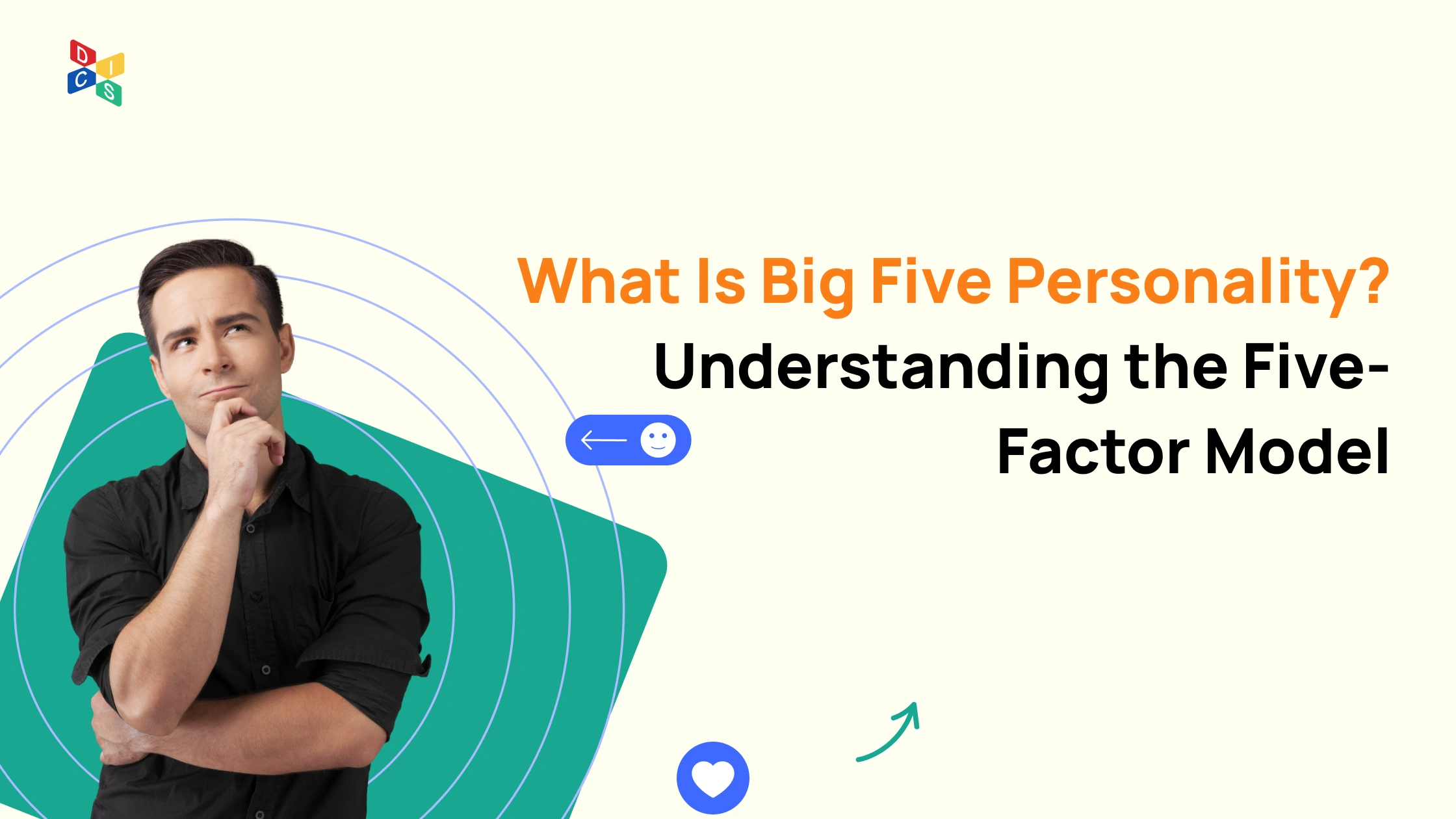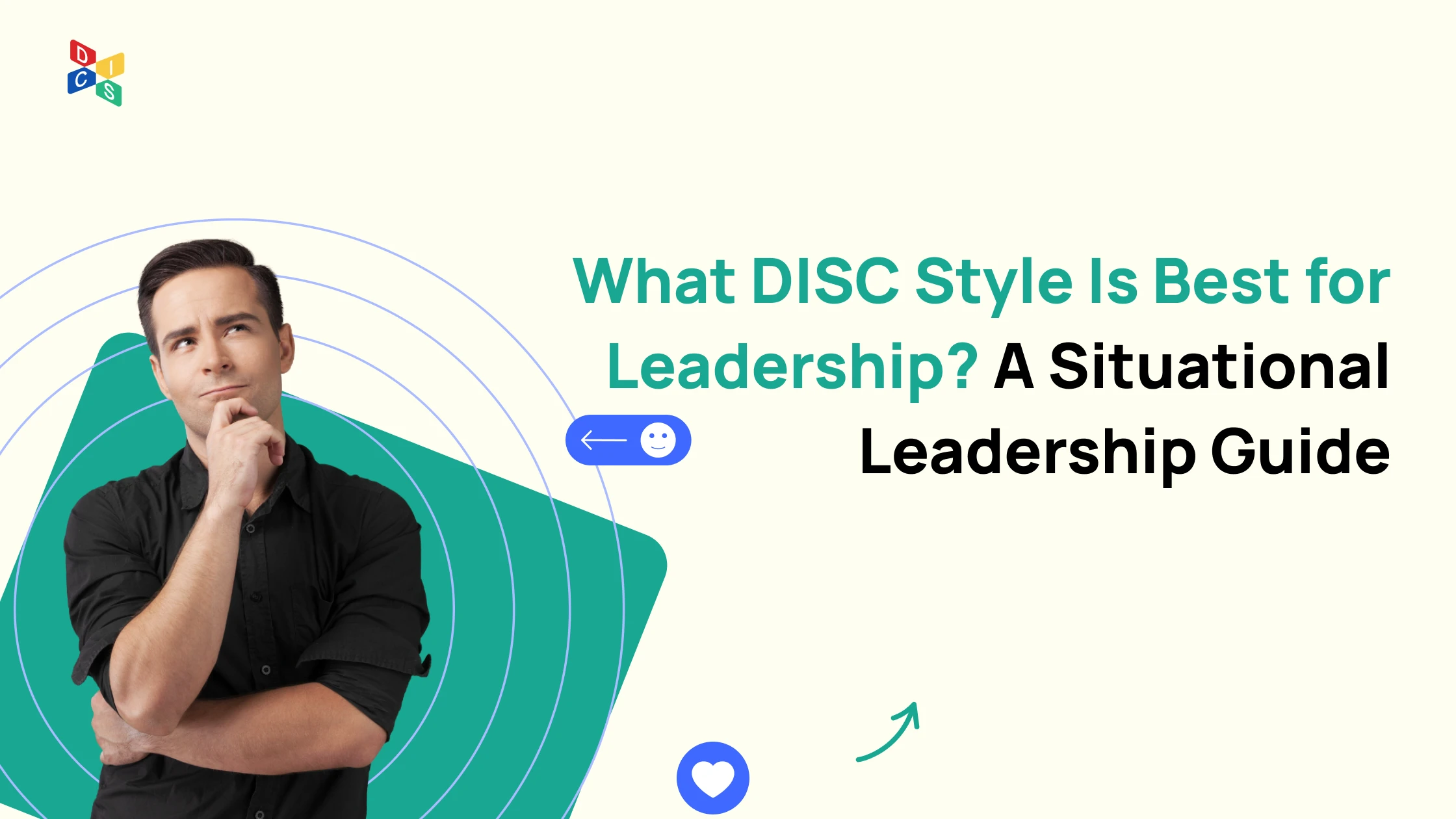Table of content
DiSC Test C Personality: Characteristics, Strengths, and Challenges
Explore the DiSC test C personality’s key characteristics, strengths, and potential challenges. Learn how this style impacts workplace dynamics.
Struggling to connect with highly analytical, detail-focused team members? In this guide, you’ll discover what defines the DiSC test C personality - its key traits, strengths, and common challenges. Learn how this personality compares with other types and how to work more effectively with this logic-driven style.

What Does The "C" In DISC Mean?
In the DiSC test model, the letter "C" represents Conscientiousness. The DiSC test C personality people value precision, analysis, reasoning, and quality. They tend to be quiet and deliberate, treating things meticulously and systematically.

High-C individuals are naturally motivated by a desire to understand complex information, spot inconsistencies, and solve problems logically. They approach their task with caution and deliberateness; they will not make rash decisions without first evaluating all choices.
They perform best in environments that:
- Emphasize data over opinions
- Encourage deep focus and minimal distractions
- Provide clear guidelines, processes, and expectations
- Support independent work and time for thorough analysis
They contribute to teamwork by asking appropriate questions, recognizing potential errors, and offering a level of quality control that ensures the group's success. Even if they may not be the most outspoken, the precision and trustworthiness of their work speak for themselves.
| Read more: What Do The Letters in DiSC Stand For? Understanding the 4 DiSC Personality Types in 2025 |
Core Characteristics of the “C” Personality
Understanding DiSC test C personality characteristics is critical for identifying and working effectively with them.
Take the DiSC test C personality free here: DISC Personality Test

Analytical
Because they are motivated by facts, logic, and objective thinking, High-C personalities enjoy breaking down complex topics into smaller, more manageable chunks. They are motivated by an analytical attitude to thoroughly know systems, and their conclusions are based on facts and tried-and-true approaches rather than emotions or gut sentiments.
Advantages
- Make well-informed, data-backed decisions
- Excel in problem-solving by identifying root causes and system inefficiencies
- Great at handling complex tasks
Disadvantages
- Struggle with decision-making by overanalyzing when data is incomplete
- Overly critical or detached in emotionally driven situations
Detail-Oriented
C personality types place a great value on correctness and precision, they are innately focused on minor details that others may overlook. They double-check their work, identify disparities, and minimize errors because they are committed to performing tasks flawlessly.
Advantages
- Produces high-quality, error-free work
- Excellent at quality control, editing, and reviewing tasks
- Enhances team reliability
Disadvantages
- Spend excessive time perfecting details, leading to slower progress
- Struggle in fast-paced environments
Reserved
DiSC test C personality, who are introverted and thoughtful, are more likely to choose silent observation over group activities or conversations. They prefer to think before speaking, carefully choose their words, and only speak when they have something insightful or well-considered to say.
Advantages
- Brings thoughtful input to discussions
- Strong listening skills and high awareness of their surroundings
- Less likely to create unnecessary conflict
Disadvantages
- May be perceived as distant in group
- Can struggle to assert themselves
| Check out our DISC business suite for recruitment solutions! |
Independent
DiSC test C personality value independence and accountability, they naturally prefer working alone, where they can concentrate without interruption. They accept responsibility for their work and appreciate the freedom and space to reflect and produce high-quality results on their own schedule.
Advantages
- Takes full accountability
- Maintains focus and productivity
- Delivers thoughtful, high-quality work when given time and independence
Disadvantages
- May resist collaboration or delegation
- Can become isolated or disconnected from team
Perfectionistic
C personality types are motivated by a need for precision and high standards, they frequently exhibit perfectionistic inclinations. They hold themselves and others to extraordinarily high standards, striving for perfection in everything they do.
Advantages
- Produce meticulous, high-quality work
- Raises the standard for excellence within teams or projects
- Prevents mistakes
Disadvantages
- Struggle to finish tasks due to overanalyzing or constant revisions
- Delay progress by prioritizing perfection over efficiency
Objective
Because they value justice, reason, and impartiality, people with DiSC test C personality strive to think and make decisions objectively. They put facts before emotions, frequently going with what is right and sensible rather than what is favored or motivated by emotion.
Advantages
- Makes balanced, evidence-based decisions
- Offers constructive, fact-focused feedback
- Maintains professionalism in charged situations
Disadvantages
- Come across as overly critical or emotionally detached
- Struggle to connect with teammates
To gain a deeper understanding of your style or the styles of your team members, consider exploring a Comprehensive Test Deck.
The “C” Personality in the Workplace
Understanding the characteristics of the DiSC profile C personality tendencies can foster better collaboration, task delegation, and overall team dynamics.
Strengths They Bring to the Workplace:
- High-Quality Work
- Problem-Solving Abilities
- Systematic Approach.
- Thoroughness and Due Diligence
- Objectivity
- Technical Proficiency
Potential Challenges in the Workplace:
- Potential for Over-Analysis
- Difficulty with Ambiguity
- Hesitation to Delegate
- Communication Style
- Resistance to Change (if not well-explained)
- Perceived as Critical
Individuals with a DiSC test C personality perform best in roles that offer:
- Independent work: Allowing them focused time for analysis and task completion.
- Clear structures and processes: Providing a framework for their systematic approach.
- Opportunities for analysis and problem-solving: Engaging their natural strengths.
- Emphasis on accuracy and quality: Aligning with their core values.
- Technical or specialized expertise: Allowing them to develop and utilize their skills.
The best jobs for DiSC high C individuals are those that align with your strengths in precision, analysis, and independent work, such as:
- Data Analyst
- Software Engineer
- Accountant
- Quality Assurance Specialist
- Researcher
- Technical Writer
- Compliance Officer
Communicating with “C” Personalities

To communicate effectively with people with a high DiSC test C personality style, it's important to use a thoughtful, structured approach that aligns with their preference for logic, precision, and detail. Here’s some key strategies:
- Be Organized and Prepared: Organize and logically present your knowledge. Prepare your statistics and facts to back up your arguments.
- Be Particular and Detailed: Avoid making ambiguous or generic comments. Be ready to respond to particular inquiries and give detailed information.
- Emphasis on Logic and Facts: Appeal to their analytical nature by emphasizing the reasoning behind your ideas and decisions.
- Be Patient When Asking Questions: To make sure they understand and are accurate, they will probably ask questions. Give them thoughtful, detailed answers.
- Reduce Emotional Language: Avoid bringing up anecdotes or sentimental topics in favor of objective facts.
While DiSC focuses on behavioral styles, you might also be interested in exploring other aspects of understanding yourself, for example, with an IQ test.
Key Differences Between “C” Personality vs Other DiSC Types
Understanding how the DiSC test C personality style differs from the other DiSC personalities ("D," "i," and "S") can provide valuable insights into their contrasting motivations and behaviors.

If you're working with a team and want to understand the dynamics between different DiSC styles, consider exploring a DISC Test for Group.
C vs D Personality
"C" styles prioritize accuracy and analysis, while "D" styles prioritize action and results. DiSC test C personality individuals may see "D"s as too impulsive or demanding, while "D" individuals might view "C"s as too slow or overly cautious.
| Feature | C (Conscientiousness) | D (Dominance) |
|---|---|---|
| Primary Focus | Accuracy, Logic, Quality | Results, Action, Challenge |
| Approach | Cautious, Analytical, Reserved | Direct, Decisive, Assertive |
| Decision-Making | Based on data and analysis | Quick, Results-oriented |
| Communication | No major difference - Straightforward, precise, to the point | |
| Pace | Deliberate, Thoughtful | Fast-paced, Driven |
| Motivation | Correctness, Understanding | Achieving goals, Winning |
| Fear | Being wrong, Criticism | Loss of control, Being taken advantage of |
| Interaction Style | Task-oriented, Formal | Task-oriented, Authoritative |
C vs i Personality
DiSC test C personality styles prioritize getting things right through analysis, while "i" styles prioritize connecting with others through enthusiasm. "C" individuals might perceive "i"s as disorganized or too focused on popularity, while "i" individuals might see "C"s as aloof or overly critical.
| Feature | C (Conscientiousness) | i (Influence) |
| Primary Focus | Accuracy, Logic, Quality | Relationships, Enthusiasm, Collaboration |
| Approach | Cautious, Analytical, Reserved | Outgoing, Optimistic, Persuasive |
| Decision-Making | Based on data and analysis | Based on feelings and impact on others |
| Communication | Precise, Asks questions | Enthusiastic, Talkative |
| Pace | Deliberate, Thoughtful | Fast-paced, Spontaneous |
| Motivation | Correctness, Understanding | Recognition, Approval |
| Fear | Being wrong, Criticism | Social rejection, Being ignored |
| Interaction Style | Task-oriented, Formal | People-oriented, Informal |
C vs S Personality
While both “C” and “S” types tend to be more reserved, their motivations differ. “C” types are driven by a desire for accuracy, whereas “S” types prioritize harmony and support within the group. As a result, “C” personalities may view “S” types as too focused on avoiding necessary change. On the other hand, “S” personalities might see “C” types as overly critical or emotionally distant.
| Feature | C (Conscientiousness) | S (Steadiness) |
| Primary Focus | Accuracy, Logic, Quality | Stability, Support, Harmony |
| Approach | Cautious, Analytical, Reserved | Patient, Cooperative, Calm |
| Decision-Making | Based on data and analysis | Seeks consensus, Considers impact on others |
| Communication | Precise, Asks questions | Gentle, Empathetic |
| Pace | Deliberate, Thoughtful | Steady, Consistent |
| Motivation | Correctness, Understanding | Security, Appreciation |
| Fear | Being wrong, Criticism | Disruption, Conflict |
| Interaction Style | Task-oriented, Formal | People-oriented, Supportive |
Final Thoughts
Knowing the DiSC test C personality type exposes people who are quality-oriented, analytical, and accuracy-driven, contributing priceless skills like attention to detail and problem-solving to a variety of contexts. Even while their obsession with accuracy can lead to problems like overanalysis, identifying these tendencies promotes improved cooperation and communication. In the end, stronger bonds and more harmonious, productive teams result from recognizing the distinctive contributions of the "C" type and other DiSC personalities.
Take :
FAQs
Q1. What does DiSC's "C" stand for?
The letter "C" in the DiSC model represents conscientiousness. The emphasis on precision, analysis, reasoning, and quality defines this approach.
Q2. What are the fundamental traits of a DiSC test C personality?
A few essential traits are being analytical, meticulous, autonomous, private, inquisitive, occasionally perfectionistic, and extremely quality-focused.
Q3. What are some strengths of "C" personalities at work?
DiSC test C personality styles contribute through thoroughness, objectivity, a methodical approach, high-quality work, good problem-solving skills, and frequently technical proficiency.
Q4. What are some potential challenges of "C" personalities at work?
A guarded communication style, resistance to change (if not adequately explained), difficulties with ambiguity, hesitancy to delegate, over-analysis, and occasionally being seen as critical are some potential obstacles.
Q5. What type of workplace is best for a "C" personality type?
DiSC test C personality frequently flourish in positions that emphasize precision and quality, provide opportunity for analysis and problem-solving, allow for individual work, and have clear procedures.


Don't Let Your Potential Stay Hidden!
Take the DISC test today and discover your unique 'YOU', with deep insights into your true personality and potential.

Represents your instinctive behaviors and desires.
Shows the behavioral tendencies you think you should exhibit in specific situations.
Related articles
You may also be interested in
 DISCDec 31, 2025
DISCDec 31, 2025What Is Group Culture? How Team Behaviors Shape Workplace Success
Discover what is group culture and how it shapes team dynamics, decision-making, and performance. Learn how the DISC model can help improve your team’s culture.
 DISCDec 31, 2025
DISCDec 31, 2025What Is Big Five Personality? Understanding the Five-Factor Model
What is Big Five personality? Explore the 5 traits - openness, conscientiousness, extraversion, agreeableness, and neuroticism - and how they shape behavior.
 DISCDec 19, 2025
DISCDec 19, 2025What DISC Style Is Best for Leadership? A Situational Leadership Guide
Uncover what DISC style is best for leadership and how each personality type can shape your leadership approach. Maximize your strengths for team success.
